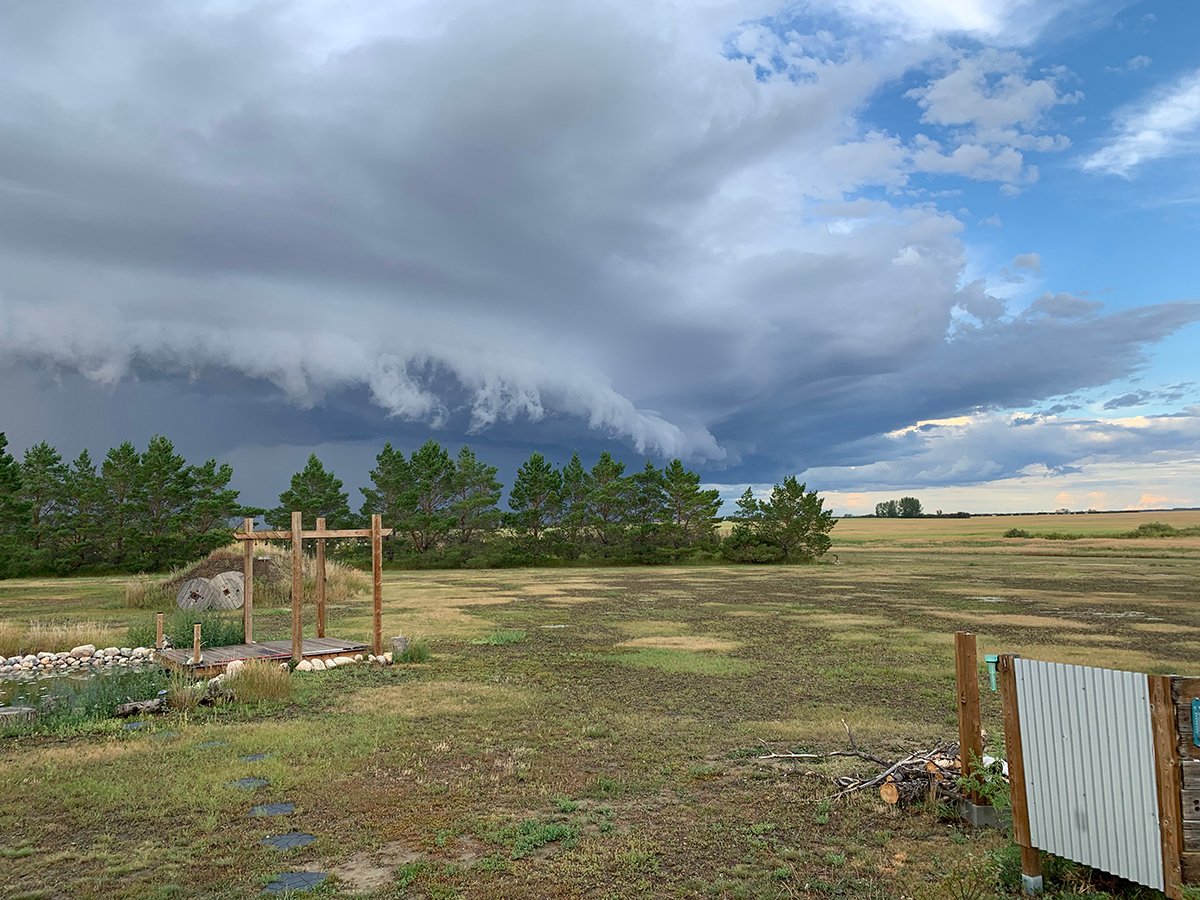Saskatchewan’s first agriculture minister was well suited for the job.
William Richard Motherwell came from a farm near Perth, Ont., graduated from the Ontario Agricultural College and was one of the first settlers in the Abernethy, Sask., district after heading west.
By the time Walter Scott appointed him minister in 1906, Motherwell had been farming and raising livestock since 1882.
He was active in agricultural fairs, local politics, his church and the school board. He had twice run unsuccessfully for the territorial government and had decided to concentrate on his farm.
Read Also

Storm dynamics and extreme rainfall
Besides moisture, instability and orographic lift, the next biggest factor that contributes to heavy or extreme rainfall is storm dynamics.
But events conspired to reverse that decision.
Farmers hoped their 1901 bumper crop of 62 million bushels of wheat would result in more money for them.
When Canadian Pacific Railway couldn’t ship the grain because it didn’t have enough grain cars, farmers were forced to store it and accept a lower price.
Motherwell and his neighbour, Peter Dayman, organized a meeting in Indian Head, Sask., for Dec. 18.
The Territorial Grain Growers’ Association was born at this meeting and Motherwell was elected its first president.
The association called on farmers to work together to change the grain handling and transportation system and Parliament agreed to its resolutions.
When the CPR ignored directives to provide loading platforms within a reasonable time frame, the association took the Sintaluta, Sask., station agent to court and won.
This period also marked the formation of co-operatives in each of the prairie provinces as farmers saw the value in organizing.
As long as western farmers grow wheat, “it would be necessary to have an organization,” Motherwell
said during a Regina speech to the association March 27, 1903, that was recorded in Allan R. Turner’s W.R. Motherwell and Agricultural Development in
Saskatchewan, 1905-1918.
“They must avoid the ‘ruinous way’ of selling by the load,” Turner wrote of that speech. “It was better to sell in bulk or through farmers’ elevators.”
Motherwell remained president until Scott asked him to join cabinet.
As minister for 12 years, Motherwell was a strong proponent of new farming techniques and research.
He convinced Scott to establish an agricultural college when the University of Saskatchewan was founded.
He also believed in getting that information out to farmers. The Better Farming Train program was established in 1914 and travelled the province until 1922 with information and demonstrations for farmers. The train
also offered child care.
Motherwell’s name was often associated with the dry land farming practice of summerfallowing, Turner noted.
The minister lectured on topics such as crop rotation and tree planting. He introduced extension efforts and established experimental farms and demonstration plots.
As Turner said, he was a leader rather than a follower.
His homestead served as an example of that.
Lanark Place, named after the county where he grew up, was set up in a quadrant style. The quadrants were separated by shelterbelts for shelter and beauty. Each quadrant had its own purpose: the dugout; the garden; the barn and the stone house, which still stands.
Motherwell left the provincial government in 1918, protesting the conscription of young farmers for the First World War and the limiting of French language rights in schools.
At nearly 62, he was elected federally in Regina in 1921. William Lyon Mackenzie King appointed him federal agriculture minister, a portfolio he held until 1930.
His most notable contributions during this time were the establishment of cereal breeding and rust research laboratories in Winnipeg, grade standards for most farm products and the accredited herd system that helped eradicate tuberculosis in cattle herds.
He continued to serve in Parliament and retired in 1939. Motherwell died May 24, 1943, at age 83.















